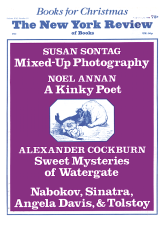THE ONE THING THAT CAN SAVE AMERICA
Is anything central?
Orchards flung out on the land,
Urban forests, rustic plantations, knee-high hills?
Are place names central?
Elm Grove, Adcock Corner, Story Book Farm?
As they concur with a rush at eye level
Beating themselves into eyes which have had enough
Thank you, no more thank you.
And they come on like scenery mingled with darkness,
The damp plains, overgrown suburbs,
Places of known civic pride, of civil obscurity.
These are connected to my version of America
But the juice is elsewhere.
This morning as I walked out of your room
After breakfast crosshatched with
Backward and forward glances, backward into light,
Forward into unfamiliar light,
Was it our doing, and was it
The material, the lumber of life, or of lives
We were measuring, counting?
A mood soon to be forgotten
In crossed girders of light, cool downtown shadow
In this morning that has seized us again?
I know that I braid my own
Snapped off perceptions of things as they come to me.
They are private and always will be.
Where then are the private turns of event
Destined to boom later like golden chimes
Released over a city from a highest tower?
The quirky things that happen to me, and I tell you,
And you instantly know what I mean?
What remote orchard reached by winding roads
Hides them? What are these roots?
It is the lumps and trials
That tell us whether we shall be known
And whether our fate can be exemplary, like a star.
All the rest is waiting
For a letter that never arrives,
Day after day, the exasperation
Until finally you have ripped it open not knowing what it is,
The two envelope halves lying on a plate:
The message was wise, and seemingly
Dictated a long time ago.
Its truth is timeless, but its time has still
Not arrived, telling of danger, and the mostly limited
Steps that can be taken against danger
Now and in the future, in cool yards,
In quiet small houses in the country,
Our country, in fenced areas, in cool shady streets.
FORTIES FLICK
The shadow of the Venetian blind on the painted wall,
Shadows of the snake-plant and cacti, the plaster animals,
Focus the tragic melancholy of the bright stare
Into nowhere, a hole like the black holes in space.
In bra and panties she sidles to the window:
Zip! Up with the blind. A fragile street scene offers itself,
With wafer-thin pedestrians who know where they are going.
The blind comes down slowly, the slats are slowly tilted up.
Why must it always end this way?
A dais with woman reading, with the ruckus of her hair
And all that is unsaid about her pulling us back to her, with her
Into the silence that night alone can’t explain.
Silence of the library, of the telephone with its pad,
But we didn’t have to reinvent these either:
They had gone away into the plot of a story,
The “art” part—knowing what important details to leave out
And the way character is developed. Things too real
To be of much concern, hence artificial, yet now all over the page,
The indoors with the outside becoming part of you
As you find you had never left off laughing at death,
The background, dark vine at the edge of the porch.
This Issue
November 28, 1974



